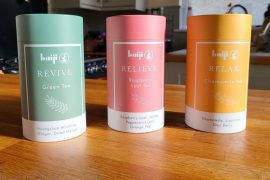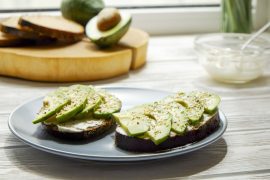9 Signs of Deficiency
- Easy bruising
- Swollen gums
- Bleeding gums
- Slow wound healing
- Gingivitis
- Dry and splitting hair
- Rough, dry, scaly skin
- Nosebleeds
- A weakened immune system, e.g. inability to shake coughs and colds
The best source
Our food. Especially fruits and vegetables in their whole form, fresh and local:
- Uncooked and raw.
- Cut and prepared as close as possible to eating.
- Steamed instead of boiled or baked.
Eating foods in their most natural and whole forms give our bodies more nutrients and the ‘co-factors’, i.e. the other nutrients and enzymes that allow those nutrients to be easily and effectively absorbed by our bodies.
While many of us turn to supplements first, it’s important to emphasise the best source of any vitamin, mineral, or nutrient is fresh, raw and local food sources.
However, in saying that, with the change of seasons I always add in a vitamin C supplement.
Specific foods to be adding in
- Fermented and pickled vegetables, e.g. a simple sauerkraut, a basic kimchi and pickled carrots.
- Dark leafy greens, e.g. kale, silver beet, spinach and other vegetables like broccoli, cauliflower, brussel sprouts, etc.
- Herbs, e.g. coriander, cilantro, parsley and basil.
- Fruit. Commonly think of oranges. Better fruits to choose with more vitamin C: berries, e.g. blueberries and strawberries, papaya, kiwi fruit, pineapple and lemons.
And the foods with the highest amount of vitamin C are:
- Native plants. Camu camu, a fruit from the amazon and Kakadu plum, also called gubinge or billygoat plum and is grown in the north of Western Australia in the Kimberley. These foods usually come in a powdered form and can be found at your local health food store. If you’re in Australia, try the gubinge before the camu camu – it is extremely high in vitamin C, is a whole food, i.e. more absorbable, plus you’ll be supporting our local businesses!
These foods can easily be added into our meals, or another easy way to add them in is in smoothies.
Supplementing: If we need to supplement, be certain that the supplements are high quality, they are bioavailable, i.e. in a liquid form (e.g. a lioposomal vitamin C) or powdered, with few ingredients, are free of additives, fillers, or synthetic ingredients and are preferably bottled in glass.
And THE best ways to boost our immune system overall… sleep well, move more and stress less.
Key Messages
- Vitamin C is an essential nutrient and it’s needed in our diet daily, even for our children.
- The best source is through breast milk for babies (mother), food, fresh, local, raw, gently steamed, however many of us aren’t absorbing well…
- Check for any factors that may be inhibiting absorption (listed above).
- If you do supplement, look for a good quality brand in a liquid or powdered form.
And some more inspiration and information on boosting our immunity simply:
A checklist for great immunity. 24 tips to nurture and nourish.
14 tips your immunity will love.
7 tips to improve gut health.
Be curious. Experiment. Listen. Be enriched.
Originally published here.
After working as an executive in professional services, Kate Barnes started her global business as a Certified Holistic Health Coach. She has a Bachelor of Science and a Post Graduate Diploma in Business. Kate runs an online program, ‘Our Happy Children‘, a leading education program for deeply nourishing families and building strong immunity, great energy and preventing illness. For more information visit Kate’s website, like her Facebook page for loads of daily inspiration, healthy tips and recipes and follow her on Instagram.










